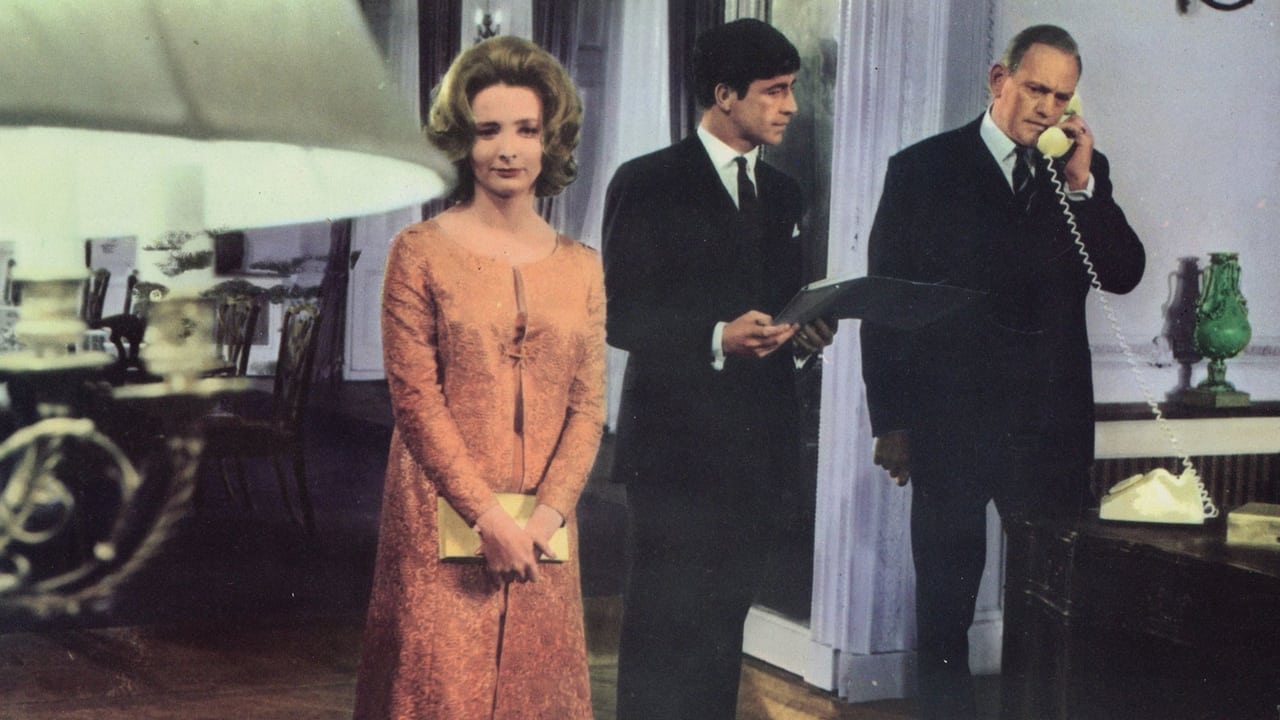Rijndri
Load of rubbish!!
Fairaher
The film makes a home in your brain and the only cure is to see it again.
KnotStronger
This is a must-see and one of the best documentaries - and films - of this year.
Staci Frederick
Blistering performances.
Leofwine_draca
NOTHING BUT THE BEST is an acerbic black comedy about a scoundrel's attempts to rise to the top and make a name for himself, at the expense of all those around him. Alan Bates takes the lead of the amoral protagonist, a character who takes ruthlessness to the next level, and he's here surrounded by a strong supporting cast that includes Denholm Elliott at his most sympathetically decadent and James Villiers at his oiliest. The humour is quite subtle here and the film does take a murderous angle around the middle section, which makes for an unnerving, challenging viewing at times.
trimmerb1234
A pretty superb black comedy with award winning screenplay by American born Frederick Raphael, distinguished screenwriter. A good story, great performances and excellent production. And, more than 50 years later, still fresh. Popular music, fashions, decor, language, behaviour -so much has changed in 50 years. But a lot remains unchanged: money and class to name but two.Brewster (Alan Bates) is an exceptional young man. Of lower middle class background he can maintain a habitually pleasant expression, be charming and humorous, is very quick-witted, opportunistic, coldly calculating , completely unscrupulous and will do anything necessary to feed an almost unlimited ambition - without ever losing his habitual pleasant expression. Brewster is determined to climb the social ladder but the exclusive club of the upper class and very wealthy keeps its doors firmly shut to him and his like. However a happy chance meeting suggests a scheme to breach the club's defences. One of its members (Mr Prince - Denholm Elliot), thoroughly-disgraced son, disowned by his family, can be persuaded, for money, to train Brewster in the ways of his class: how to dress, how to speak, how to behave. And quick learner, Brewster turns out to be. But Brewster is no snob and is always practical: while it's his boss's daughter he plans to wed, he nevertheless finds it advantageous to retain a place in his middle-aged landlady's heart and bed.But it is the screenplay which received the film's single award and the dialogue is at its smartest as Prince instructs imposter Brewster in the ways of the class he aspires to join. It's not just their opinions but the different manner with which each must be delivered. Faking an Oxbridge background, how to behave when watching college rowing (be ostentatiously disparaging as if an older and better rower). Suitable opinions (circa 1963) on foreigners: Americans - "let us down badly over Suez". Black people "make fine cricketers". The commandments seem to include: be brief, never bore, never be overly earnest, understate, don't be adventurous.This is Frederick Raphaels satire and take on the British upper classes, that a clever fake can remain under all circumstances undetected. I think the evidence is that their antennae are especially finely tuned for the avoidance of just such unfortunate marriages. However history suggests that the titled owner of the grand London estate agents auctioneers (Harry Andrews) where Brewster works, prizes business acumen over actual social background. Over time, with good schooling for the next generation, social class can be retained. But without money neither a growing financial empire nor a dynasty is possible.Some great moments as when Brewster's pleasant expression is tested to its limits when a familiar large case arrives at his shortly be in-laws grand house, and falls from a considerable height. Bates and Denholm Elliot are both superb. A great British film.Until Talking Pictures TV came on the scene and revived some of these quality films, I would have never realised the cinema talent Britain had. So badly are we let down by the broadcasters
MARIO GAUCI
A film from the "Swinging London" era and, like much of the output pertaining to that camp, one that feels quite dated when viewed today. It nevertheless maintains a sense of style throughout (Nicolas Roeg was the cinematographer) and the familiar plot (following the exploits of a social climber in the none-too-exciting world of high-finance – suffice to say that it is sometimes hard to discern the exact function of the various minor characters the protagonist comes into contact with!) still works thanks to the blackly comic vein in Frederic Raphael's script and Alan Bates' central performance as the cocky anti-hero. Even so, the supporting cast is just as notable – highlighting in particular Denholm Elliott (as Bates' 'tutor' in the money-making ways and whom he later callously disposes of), Millicent Martin (as the high-society girl he sets his sights on: she also sings the title number!), Harry Andrews (as the latter's father and Bates' boss), Pauline Delany (as Bates' ageing landlady and occasional fling) and James Villiers (as, typically, an upper-class twit and Martin's intended). The inherent amorality at work anticipates ALFIE (1966) in many ways (incidentally, Martin turned up here as well): though a box-office smash and a multi-Oscar nominee, I had actually found that film to be similarly overrated. The twist involving Elliott's true identity – which threatens to expose Bates for what he is, but which he still manages to turn in his favor (since the script clearly wants us to root for him) – does end proceedings on a high note in this case. For the record, this seems to be another ultra-rare title, having acquired it via a less-than-optimal copy culled from an old TV broadcast
david pearce
What a superb film in my opinion difficult to beat. The British system slyly used to the main characters advantage . Alan Bates and Denholm Elliot excel in this classy tongue in cheek rendition of how to succeed. A film worthy of release particularly since the demise of both main stars.

